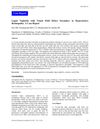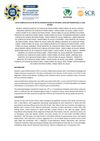 October 2024 in “Reumatizam”
October 2024 in “Reumatizam” New treatments and understanding of skin lupus are emerging in 2024.

Ziziphus jujuba and Eclipta alba leaf extracts improve blood sugar levels and cognitive function in diabetic rats.
[object Object]  34 citations,
September 2020 in “BMC Endocrine Disorders”
34 citations,
September 2020 in “BMC Endocrine Disorders” Existing drug dexamethasone may lower death risk in severe COVID-19 cases; more research needed for other drugs.
 8 citations,
June 2021 in “Journal of Cosmetic Dermatology”
8 citations,
June 2021 in “Journal of Cosmetic Dermatology” The review found that COVID-19 can cause skin problems, including rashes and issues from wearing PPE, and suggests more research and protective measures for healthcare workers.
 December 2023 in “Revista de la Facultad de Ciencias Médicas (Quito)”
December 2023 in “Revista de la Facultad de Ciencias Médicas (Quito)” Fever and rash can be early signs of lupus.
 July 2023 in “International Journal of Endocrinology”
July 2023 in “International Journal of Endocrinology” Centratherum anthelminticum seed extract effectively treats Polycystic Ovary Syndrome in rats.
 31 citations,
August 1975 in “Journal of Pharmaceutical Sciences”
31 citations,
August 1975 in “Journal of Pharmaceutical Sciences” Minoxidil metabolizes similarly in monkeys and humans, but differently in dogs and rats.
 September 2023 in “Ethiopian journal of health sciences”
September 2023 in “Ethiopian journal of health sciences” Plantain leaf extract reduces liver oxidative stress in malaria-infected mice.
 February 2010 in “Journal of The American Academy of Dermatology”
February 2010 in “Journal of The American Academy of Dermatology” A woman with Degos disease managed her condition for nine years with medications and had two healthy pregnancies, while a separate finding suggests a possible link between female pattern hair loss and high blood pressure.

A patient with patchy hair loss was successfully treated for Tumid Lupus Erythematosus after other treatments failed.
 44 citations,
August 2012 in “Journal of Food Science”
44 citations,
August 2012 in “Journal of Food Science” The best way to extract saponins from Eclipta prostrasta is using 70% ethanol, at 70°C for 3 hours with a 14:1 liquid to solid ratio.
 13 citations,
May 2021 in “Plants”
13 citations,
May 2021 in “Plants” The leaf extract of Leea indica may reduce inflammation, dissolve blood clots, and promote hair growth.
 January 2012 in “Yearbook of Dermatology and Dermatologic Surgery”
January 2012 in “Yearbook of Dermatology and Dermatologic Surgery” Iron deficiency is not more common in women with hair loss, and neurogenic rosacea may need different treatment.
 December 2024 in “Journal of Applied Toxicology”
December 2024 in “Journal of Applied Toxicology” High doses of dihydroartemisinin caused reversible liver toxicity in rats, with females more affected than males.

Biotin does not significantly help with hair growth.
 7 citations,
December 2019 in “Pharmaceutics”
7 citations,
December 2019 in “Pharmaceutics” Taking Dutasteride with Ketoconazole can increase Dutasteride's effects and side effects.
[object Object] A 2-year-old boy with a rare type of lupus causing hair loss improved with oral steroids.
2 citations,
May 2016 in “Oxford University Press eBooks” Systemic lupus erythematosus is managed with lifestyle changes, symptomatic treatments, and careful use of medications to control symptoms and flares.
 13 citations,
October 2017 in “Biomedicine & Pharmacotherapy”
13 citations,
October 2017 in “Biomedicine & Pharmacotherapy” Eclipta alba extract may help treat obesity by blocking fat cell formation and lowering blood lipid levels.

Hair loss in African American women, caused by hair care, genetics, and environment, needs more research for better treatment.
 8 citations,
April 2019 in “International journal of scientific research in biological science”
8 citations,
April 2019 in “International journal of scientific research in biological science” Tridax procumbens is a widely used medicinal plant with many health benefits.
 November 2017 in “Journal of Surgical Academia”
November 2017 in “Journal of Surgical Academia” Visual field defects in lupus nephritis can be caused by hypertensive retinopathy, not glaucoma or medication toxicity.
 17 citations,
January 2015 in “International Journal of Trichology”
17 citations,
January 2015 in “International Journal of Trichology” Frontal fibrosing alopecia may affect nails and could be a type of lichen planus, treatable with certain medications.
1 citations,
April 2024 in “Indian Journal of Pharmacy Practice” Autoimmune skin disorders are caused by genetic and environmental factors and are treated with various medications and preventative strategies.
50 citations,
May 2021 in “Frontiers in immunology” Certain immune cells contribute to skin autoimmune diseases, and some treatments can reverse hair loss in these conditions.
 3 citations,
January 2019 in “Annals of dermatology/Annals of Dermatology”
3 citations,
January 2019 in “Annals of dermatology/Annals of Dermatology” Hydroxychloroquine effectively treated twenty-nail dystrophy in a patient with alopecia areata.
 April 2021 in “BMJ Case Reports”
April 2021 in “BMJ Case Reports” Accurate diagnosis of pseudolymphomatous folliculitis is crucial to avoid mistaking it for more serious conditions.
 August 2019 in “Blucher Medical Proceedings”
August 2019 in “Blucher Medical Proceedings” Lupus Panniculitis can be an early sign of Systemic Lupus Erythematosus.
 October 2023 in “TURKDERM”
October 2023 in “TURKDERM” COVID-19 reduced dermatology visits by 30.4%, with more male patients and increased cases of psoriasis, bullous diseases, and melanoma.
 1 citations,
October 2022 in “Annals of Translational Medicine”
1 citations,
October 2022 in “Annals of Translational Medicine” Cucurbitacin helps mice grow hair by blocking a protein that stops hair growth.


























